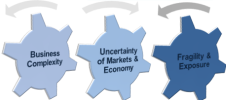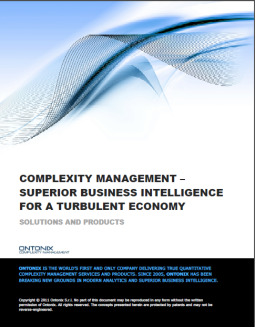So, what does the future hold?
Friday, 26 October, 2012 Leave a comment
…NO-ONE KNOWS! Deal with it. Move on.
It doesn’t matter whether you have a calculator or a PhD, a supercomputer and a job with a 200 year old financial institution that is a fact. So, can we PLEASE get over our prediction addiction and deal with what we are able to influence in the real world!?
Coincidentally, this morning, I read an excellent book review (Models Behaving Badly by Emanuel Derman) and I wanted to share his quote about mathematical models: “we are trying to force the ugly stepsister’s foot into Cinderella’s pretty glass slipper. It doesn’t fit without cutting off some of the essential parts.”
But here is yet another expert making the same point…
Simulations of highly dynamic natural systems have shown that models of growing complexity are moving slowly toward reasonable replications of reality: global climate modelling is a fine example of this slow, but indisputable, trend. In contrast, forecasts of interactions of social, economic, technical, and environmental developments are not going to improve by making models more complex. This is because so many critical variables determining eventual outcomes cannot be either anticipated or, when they get considered, their probabilities cannot be confidently placed within bounds narrow enough to generate a restricted fan of possible outcomes that might be used in confident decision making. Once the inherent uncertainties make the outcome fan too wide, there is little point in building more complex models: we might have obtained pretty much the same results with a small electronic calculator and the proverbial back of an envelope.
What to Do Instead













